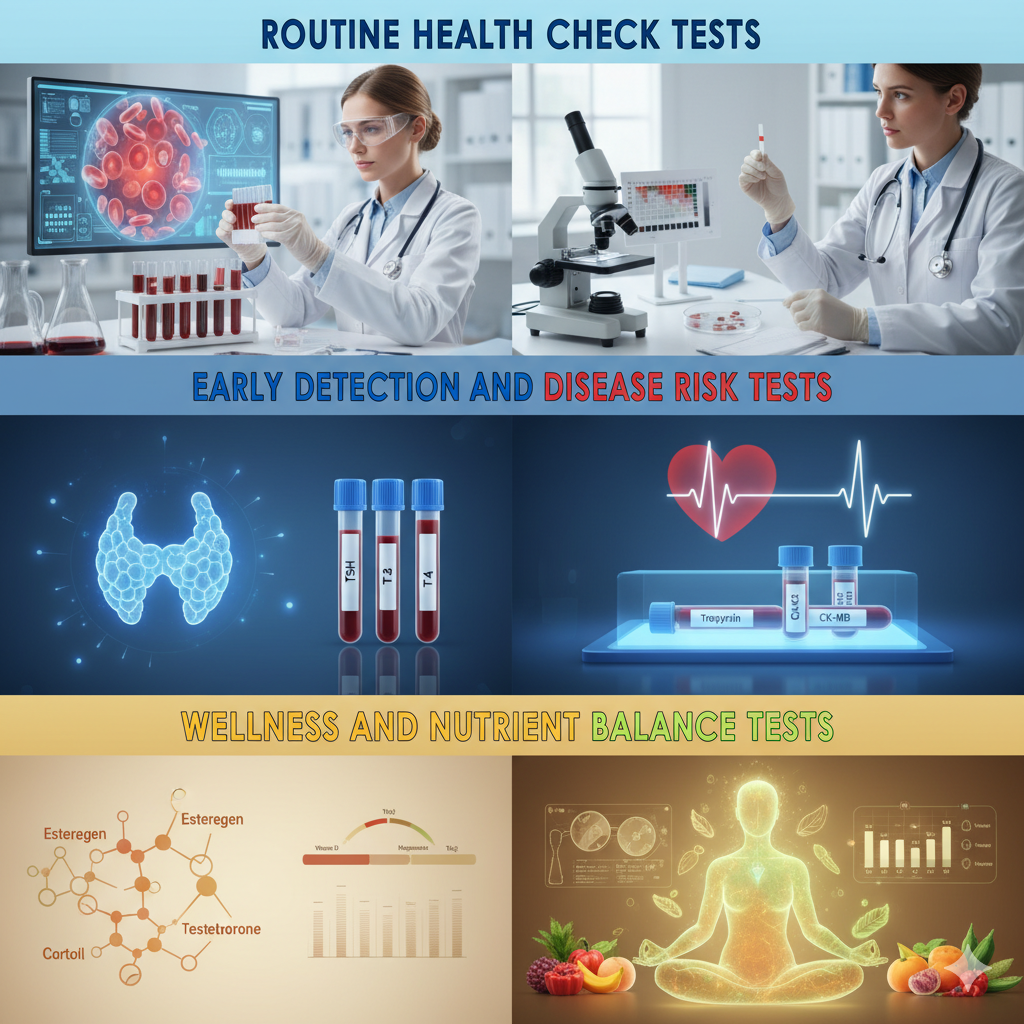Virtual vs. In-Person Consultations: Which Healthcare Option Is Best for You?
Why Regular Lab Tests Are Essential: Early Detection, Prevention & Better Health
Have you ever wondered what keeps your body running smoothly behind the scenes? While you may feel perfectly fine, small internal changes can be quietly developing—changes that only lab tests can reveal. Regular lab testing acts as your body’s early warning system, detecting imbalances, deficiencies, and risks long before they become major health problems.
Think of lab tests as a mirror reflecting your internal health. They don’t just diagnose disease, they help track your body’s progress, guide preventive care, and ensure long-term wellness. In many ways, routine testing is one of the simplest and most powerful ways to take charge of your health.
Lab Tests vs. Symptoms: What’s the Difference?
Symptoms are like alarms that go off once something has already gone wrong. Lab tests, on the other hand, act before the alarm even sounds. They catch health issues in their silent stages, when treatment is easier, faster, and more effective.
For example, you may feel perfectly healthy but have rising cholesterol or blood sugar levels that could later lead to heart disease or diabetes. Regular lab screenings allow your doctor to intervene early, making adjustments in your diet, activity, or medication before complications arise.
The key difference? Symptoms react. Lab tests prevent. They help identify risks early and keep your healthcare proactive, not reactive. To discuss your preventive care options, you can schedule a healthcare consultation.
Types of Regular Lab Tests and What They Reveal
Understanding what each test shows helps you appreciate how much insight a single blood draw can offer. Here are the most commonly recommended ones:
1. Complete Blood Count (CBC): Evaluates red and white blood cells, hemoglobin, and platelets to detect infections, anemia, or immune disorders.
2. Lipid Profile: Measures cholesterol and triglyceride levels to assess heart health.
3. Blood Glucose (HbA1c): Reveals how well your body regulates sugar, helping detect prediabetes or diabetes early.
4. Liver and Kidney Function Tests: Assess how effectively these vital organs filter toxins and process nutrients.
5. Thyroid Function Tests (TSH, T3, T4): Identify hormonal imbalances affecting metabolism, mood, and energy.
To learn about testing services offered near you, explore our lab services.

Why Early Detection Saves Lives
Many life-threatening diseases, including cancer, kidney failure, and heart disease, begin silently. You might feel fine even as serious changes unfold inside your body. Regular testing acts like a flashlight in the dark, it exposes issues early enough to reverse or manage them effectively.
For instance, elevated cholesterol levels can indicate heart disease risk years before symptoms like chest pain appear. Similarly, mildly increased creatinine levels may point to kidney stress that can still be managed through hydration or IV fluid therapy.
Early detection doesn’t just save lives, it saves time, money, and emotional distress down the road.
Preventive Power: Tracking and Maintaining Wellness
Preventive care isn’t about waiting for a diagnosis; it’s about keeping your body balanced. Regular lab testing helps doctors monitor trends in your results your personal “health signature.”
If your vitamin levels dip, your thyroid slightly slows, or your cholesterol creeps upward, your provider can act before the problem escalates. Routine tests during wellness exams make these patterns visible, allowing you to maintain your best health year-round.
This proactive approach builds long-term stability and resilience, your health stays one step ahead of disease.
Common Barriers to Regular Testing and How to Overcome Them
Many people skip lab tests because they feel fine, worry about costs, or simply forget. But missing routine testing can mean missing vital clues.
1. “I feel healthy, so I don’t need tests.”
Many conditions, such as high blood pressure or diabetes, develop silently. Regular lab work ensures you’re not overlooking hidden risks.
2. “It’s too expensive.”
In reality, preventive testing costs far less than treating advanced disease. Discuss coverage options with your insurance provider or primary care doctor.
3. “It takes too much time.”
Modern labs make testing quick, often with same-day results. Most people can complete their annual panels in under an hour.
How to Prepare for Your Lab Tests
Preparation affects accuracy. Here’s how to ensure your results truly reflect your health:
Follow fasting instructions: Some tests, like glucose or lipid panels, require fasting for 8–12 hours.
Stay hydrated: Dehydration can alter kidney and electrolyte readings.
Inform your doctor about medications or supplements: Certain drugs or vitamins may influence lab results.
Schedule tests at a consistent time each year: This allows for meaningful year-to-year comparison.
For more details on routine screening preparation, reach out via our contact page.
The Data-Driven Feedback Loop
Lab tests turn your health journey into measurable progress. They give you and your doctor the data needed to fine-tune diet, exercise, or medication and celebrate real results.
When your cholesterol drops after months of clean eating or your HbA1c improves after regular workouts, those lab numbers become proof that your efforts are paying off. And if you’re managing deficiencies, follow-up testing helps optimize your plan with treatments like iron infusion therapy.
Emotional and Financial Benefits of Staying Proactive
Beyond physical wellness, preventive lab testing also provides peace of mind. Knowing your numbers are stable helps reduce anxiety, builds confidence, and empowers you to live freely.
Financially, prevention is always more affordable than treatment. Managing early hypertension or prediabetes is far less costly than recovering from a heart attack or kidney failure. As your care team, we view regular lab panels as your most affordable form of long-term health insurance—one that pays in prevention.
How Often Should You Get Tested?
The ideal frequency depends on your age, health history, and risk factors. However, most adults benefit from annual or biannual lab testing. People with chronic conditions like diabetes or thyroid disorders may require more frequent monitoring.
Your doctor will help customize your testing schedule during your next healthcare consultation, ensuring every result guides meaningful action.